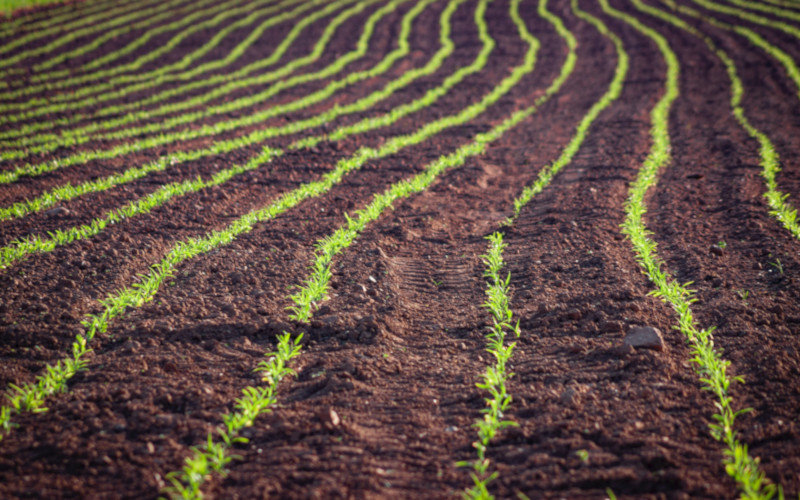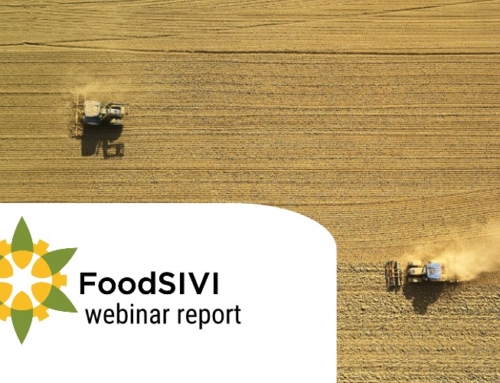The human and planetary global footprint of food is huge: it is estimated to cause 30% of CO2-equivalent emissions; 70% of water use, and over 50% of synthetic nitrogen production and phosphorous use. Some 37% of land surface is dedicated to agricultural production. Meanwhile, 66% of the 740 million people living in extreme poverty globally are agricultural workers – with 60% of all child labour as classified by the International Labour Organisation (ILO) in agriculture. Globally, 33% of adults are obese while 12% of the global population is hungry and undernourished.
The costs of this footprint are not factored into the market or supermarket price of food. Consumers, retailers, manufacturers, and growers benefit from the carbon, nitrous oxide and methane emissions produced in getting food on our plates. Those emissions will create climate change costs that are borne mostly by others in the global economy. Consumers and the food and agriculture sector also benefit from the land use and nitrogen and phosphorous emissions in agriculture. The associated costs from biodiversity loss will be borne by society more widely, particularly marginalised communities. The sector, largely private, benefits from the overconsumption of unhealthy food. In a country like the UK the national economy and the national health service foots the direct bill of overconsumption whilst the productivity loss from ill-health is experienced across all sectors.
What is the scale of these costs, and what would happen if the global footprint of food were reduced? When considering the “true cost” of food it is important to consider effects on the whole economy and counterfactuals. That is, economies with alternative food systems and the costs of the transformation. It is possible that adjusting agricultural production to a system that has a lower footprint would cost more in transition and the potential effects of more expensive food, than the saved costs from the lower footprint. If intake of unhealthy food were reduced through higher costs, the situation could be worse from additional health effects of income reduction. Health costs due to the food sector are revenue to the health sector. It is possible the reduction in value-add from a smaller health sector and consequences of a changed demographic would outweigh the productivity and human capital boost from reducing malnutrition. Many governments have subsidised the commodities and industries associated to the greatest impacts, in effect paying twice. The subsidies were designed to achieve social benefits, which may still outweigh the social costs of production.
Researchers have yet to build integrated economic models of the food system, which can examine all the economic and policy trade-offs of a global food system transformation. However, the evidence so far is that the costs of the current food system, even considering only climate and biodiversity costs, outweighs its benefits, and that alternatives have greater economic potential. That is, a transformed food system would boost global GDP.
A 2019 Food and Land Use Coalition report estimated a 0.75% boost in annual global GDP in recovered costs from a better food system in 2030 compared to status quo, remarking that the figure of this ‘economic prize’ is likely an underestimate. An International Panel of Experts on Sustainable Food Systems report collated calculations on the costs of malnutrition to low- and middle-income economies in the range of 1-5% national GDP and extensive public health costs from obesity and diabetes in advanced economies. Conservative estimates of the contribution of the food sector to climate costs alone in a future 2.5 degree world compared to a 1.5 degree world are 0.3% global long-term average GDP.
To put these figures in context, COVID-19 is estimated by the International Monetary Fund to deflate the global economy in 2020 by 5% with a 5.4% recovery in 2021; this is likely to average out over 5 years to a 1% annual depression of global GDP compared to pre-COVID-19 projections. According to the estimates, the current global food system will depress the global economy on a similar scale, 1% annual depression on average, over decades.
Join FoodSIVI’s webinar on the costs of the food system on 21 September 2020.
Dr Steven Lord is Researcher in European Food Futures in the Environmental Change Institute at the University of Oxford and leads the Food System Impact Valuation Project.





